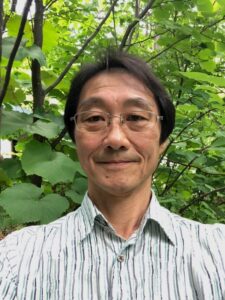Dr. Jean-Christophe Simon – France
Jean-Christophe Simonis a senior researcher at INRAE (French Research Institute for Agriculture, Food and the Environment). He is an expert in evolutionary ecology and genetics of aphids. One of his major contributions was to demonstrate that sex in aphids is maintained in the short term due to an ecological advantage over asexuality. He has also shown that asexual aphid lineages repeatedly emerge from various mechanisms and can achieve high ecological success. Currently, he is identifying the genetic and molecular basis of reproductive mode variation in pea aphids using a combination of population genomics and QTL analyses.
Over the past 15 years, he has extended his research to the evolution of aphid-plant interactions. In particular, he has shown that the pea aphid complex has undergone recent and rapid ecological diversification through multiple host changes. Currently, he is working on the genetics of plant specialization in aphids using genomics, evolutionary biology and functional approaches. He is also developing research on aphid symbionts and has documented how they strongly influence the ecology, biology and evolution of their hosts. A complete list of his publications can be found on Google Scholar Jean-Christophe Simon.
Jean-Christophe Simon’s keynote speech: “Mechanisms of sex loss in the pea aphid”

Jean-Christophe Simon
Professor Shin-Ichi Akimoto – Japan
I completed Graduate School of Agriculture, Hokkaido University, Sapporo, Japan in 1984, and became an assistant professor at the university. From 2007 to March 2022, I had been the professor of the laboratory of Systematic Entomology, Graduate School of Agriculture, Hokkaido University. I was also the president of the Entomological Society of Japan from 2017 to 2019. After retirement (from April 2022), I moved to the Hokkaido University Museum, where I am dealing with aphid taxonomy. I started my career as a taxonomist of Eriosomatinae (gall-forming aphids), and then my interest expanded to the ecology and evolutionary biology of aphids. Particularly, I have interested in speciation, the evolution of sex allocations, and the effects of intraspecific and interspecific competition on aphid evolution. Recently, I have focused on female-biased sex allocations in aphids, and tried to explain the tendency from the viewpoint of competition among stem mothers.
Schin-Ichi Akimoto’s keynote speech: “Self and non-self recognition in aphids”

Shin-Ichi Akimoto
Dr. Emmanuelle Jousselin – France
Emmanuelle Jousselin’s long term research interests are in the evolution of interactions among species and their role in the diversification of life. She addresses these questions through the use of phylogenetic reconstructions and phylogenetic comparative methods. She first started by working on one of the most fascinating model systems for the study of coevolutionnary processes, the fig/ fig wasp interactions. Upon being hired by INRAe, she initiated a research program on the evolutionary history of aphids, in collaboration with Aremlle Coeur d’acier, an expert in aphid taxonomy. Together, they investigated the central role of host-alternation in aphids diversification in the Brachycaudus genus, looked at the role of host plant specialization and asexuality in the diversification of a world-wide pest (Brachycaudus helichrysi), weighed the relative role of ecological speciation and geographic isolation in the diversification of Cinara, one the most species rich aphid genus. Emmanuelle is now investigating the role of symbiont evolutionary dynamics in aphids long term evolution, using comparative genomic of endosymbionts. All these projects have led to numerous sampling expeditions, conducted throughout Europe, Central Asia, Eastern Asia and North-America. Those collections are continuously enriching the background knowledge we have on these insects which are both fascinating models in Evolutionary Biology and important agricultural pests.
Emmanuelle Jousselin keynote speech: “Discordance between phylogenomic datasets in aphids: who’s telling the truth and what does it reveal about aphids diversification?”

Emmanuelle Jousselin
Dr. Colin Favret – Canada
Colin Favret earned his PhD in entomology at the University of Illinois, USA. After several years as collection manager of the 7-million-specimen insect collection at the Illinois Natural History Survey and as a private government contractor near Washington, DC, he was offered his dream job as professor of insect systematics and diversity at the University of Montreal, Canada. There, Colin teaches several biology courses, including introductory, applied, and systematic entomology.
He is involved in a broad range of entomological research initiatives, including several Hymenoptera diversity projects.
Colin’s primary research interest lies in deploying tools to facilitate, standardize, and accelerate aphid alpha taxonomy. Several new initiatives of interest to the aphidologist community will be described during the symposium.

Colin Favret
